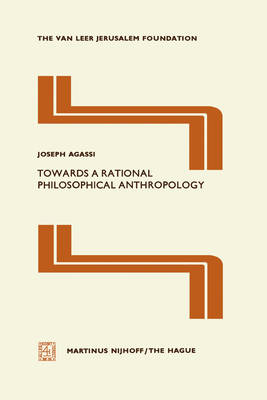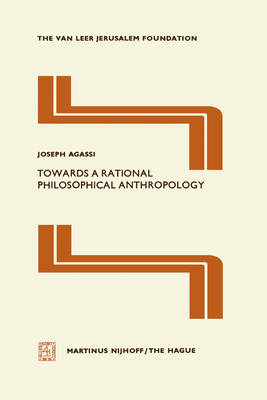
- Afhalen na 1 uur in een winkel met voorraad
- Gratis thuislevering in België vanaf € 30
- Ruim aanbod met 7 miljoen producten
- Afhalen na 1 uur in een winkel met voorraad
- Gratis thuislevering in België vanaf € 30
- Ruim aanbod met 7 miljoen producten
Zoeken
Omschrijving
The thesis of the present volume is critical and dual. (1) Present day philosophy of man and sciences of man suffer from the Greek mis- taken polarization of everything human into nature and convention which is (allegedly) good and evil, which is (allegedly) truth and fal- sity, which is (allegedly) rationality and irrationality, to wit, the polar- ization of all fields of inquiry, the natural and social sciences, as well as ethics and all technology, whether natural or social, into the totally positive and the totally negative. (2) Almost all philosophy and sci- ences of man share the erroneous work ethic which is the myth of man's evil nature - the myth of the beast in man, the doctrine of original sin. To mediate or to compromise between the first view of human nature as good with the second view of it as evil, sociologists have devised a modified utilitarianism with deferred gratification so- called, and the theory of the evil of artificial competition (capitalist and socialist alike) and of keeping up with the Joneses. Now, the mediation is not necessary. For, the polarization makes for abstract errors which are simplistic views of rationality, such as reductionism and positivism of all sorts, as well as for concrete errors, such as the disposition to condemn repeatedly those human weaknesses which are inevitable, namely man's inability to be perfectly rational, avoid all error, etc., thus setting man against himself as all too wicked.
Specificaties
Betrokkenen
- Auteur(s):
- Uitgeverij:
Inhoud
- Aantal bladzijden:
- 404
- Taal:
- Engels
- Reeks:
- Reeksnummer:
- nr. 1
Eigenschappen
- Productcode (EAN):
- 9789401010979
- Verschijningsdatum:
- 12/10/2011
- Uitvoering:
- Paperback
- Formaat:
- Trade paperback (VS)
- Afmetingen:
- 152 mm x 223 mm
- Gewicht:
- 611 g

Alleen bij Standaard Boekhandel
+ 422 punten op je klantenkaart van Standaard Boekhandel
Beoordelingen
We publiceren alleen reviews die voldoen aan de voorwaarden voor reviews. Bekijk onze voorwaarden voor reviews.











